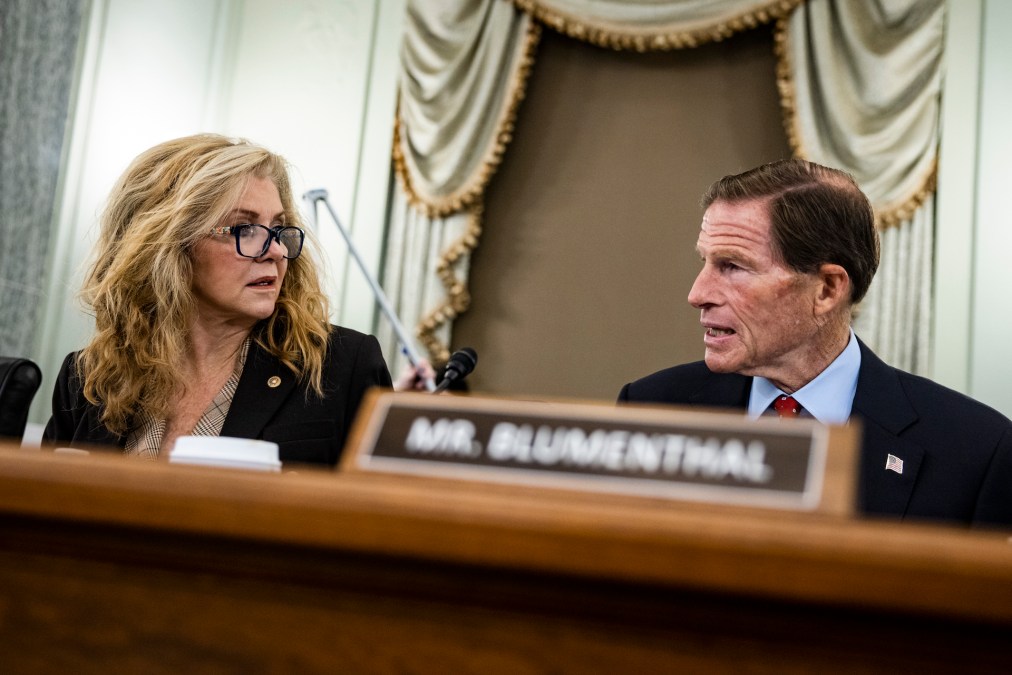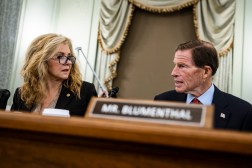Parents of trans youth rally against controversial kids online safety bill

A group of more than 100 parents of trans and gender expansive children are urging members of Congress to oppose the Kids Online Safety Act, arguing that efforts to protect minors online could backfire and be weaponized against LGBTQ communities.
In a letter sent Tuesday that was organized by the internet rights group Fight for the Future, the signatories say they share the concerns of the bill’s supporters that Big Tech is harming children but argue that their kids would be better served by more robust privacy, anti-trust and transparency measures.
“Our kids have also been harmed by these companies’ greed: their addictive design, their intrusive surveillance, their failure to address online hate, bullying, and abuse,” the letter states. “But legislation like KOSA would make our kids less safe, not more safe.”
The letter represents the latest step in an ongoing campaign by civil society groups against the bill, which was advanced by the Senate Commerce Committee in July. Both Senate Majority Leader Chuck Schumer, D-N.Y., and President Joe Biden have said they support passing the bill into law.
The Kids Online Safety Act, introduced by Sens. Richard Blumenthal, D-Conn., and Marsha Blackburn, R-Tenn., would place a duty of care on platforms to prevent promoting content to users under 17 content that includes harmful behaviors such as eating disorders and suicide. The bill provides a carve-out for support services such as suicide help hotlines, schools and educational software.
Critics say the bill would make the internet less safe for children by censoring content that could help them and by giving parents tools to surveil children in unsafe home environments. Additionally, the bill’s critics argue that it could be politicized by state attorneys general, whom the bill gives power to enforce the duty of care. This could result in content about LGBTQ matters and reproductive health being further restricted in states where that information is already being censored in schools.
The letter follows the recent surfacing of a March interview with Blackburn, one of the bill’s co-sponsors, in which she tells the conservative Family Policy Alliance that her top priority is “protecting minor children from the transgender in this culture and that influence.” She then discusses how KOSA could be used to place responsibility for care on platforms “where children are being indoctrinated.”
Blackburn’s legislative director Jamie Susskind responded in a post on X saying the video was taken out of context and that “KOSA will not — nor was it designed to — target or censor any individual or community.”
However, some supporters of the bill have embraced its potential as a tool to limit access to information about gender and sexual expression. The Heritage Foundation in May expressed support for using the bill to limit kids’ access to “sexual and transgender content.”
KOSA has garnered the support of a number of children’s safety groups including FairPlay, Design it For Us, and Common Sense Media, some of whom have expressed disapproval of Blackburn’s rhetoric.
“We are extremely disappointed in Senator Blackburn and condemn her transphobic and hurtful remarks. It is unfortunate that her personal beliefs have muddied the discussion on the Kids Online Safety Act – legislation that will protect young people from the real online harms we face,” the group Design it For Us wrote in a statement last week.
Fairplay issued a response to the letter stating the group is confident that the law protects against misuse.
“Fairplay would not be such a strident supporter of this bill if we believed that any LGBTQ+ youth would be harmed by this bill,” Fairplay wrote in a statement sent to CyberScoop. “We stand alongside parents, caregivers and families who want their queer children to be safe, supported and celebrated, both online and off.”
KOSA’s passage is far from a done deal. During the July markup, Senate Commerce Chairwoman Maria Cantwell, D-Wash., and Sen. Ed Markey, D-Mass., both cited ongoing concerns from LGBTQ groups about the bill in suggesting that changes might be needed. The bill does not have a companion in the House, where some members have already expressed opposition.
Updated Sept. 12, 2023: To include a statement from Fairplay.






